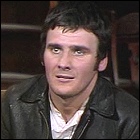 The ninth episode of Terry Nation’s post-apocalyptic series Survivors airs on BBC1.
The ninth episode of Terry Nation’s post-apocalyptic series Survivors airs on BBC1. ![]()

Earl Green is the creator, curator, and head writer of theLogBook.com.
 The ninth episode of Terry Nation’s post-apocalyptic series Survivors airs on BBC1.
The ninth episode of Terry Nation’s post-apocalyptic series Survivors airs on BBC1. ![]()
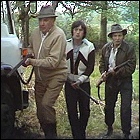 The tenth episode of Terry Nation’s post-apocalyptic series Survivors airs on BBC1.
The tenth episode of Terry Nation’s post-apocalyptic series Survivors airs on BBC1. ![]()
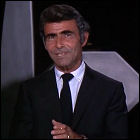 Celebrated writer Rod Serling dies at the age of 50 during a coronary bypass operation. An intelligent, rebellious mind from a young age, Serling developed an interest in writing – particularly for radio drama – before he graduated high school. He had also already developed a keen social consciousness at this age, which, combined with his authority-bucking nature, made his enlistment in the Army during World War II (immediately after graduating high school) an uneasy fit. As an Army paratrooper, Serling fought to liberate the Philippines from Japanese occupation. He was injured in combat and saw many of his comrades wounded or killed along the way, experiences which game him nightmares and informed many of his later works. He began his writing career in earnest after attending college on the G.I. Bill, and as radio gave way to television, he was at the forefront of the new profession of TV writing, with two scripts for anthology series – Patterns for Kraft Television Theatre and Requiem For A Heavyweight for Playhouse 90 – serving as career turning points. With corporate sponsors holding enormous sway over TV content in those days, Serling quickly found himself railing against the interference and outright censorship that resulted. Another anthology script, The Time Element, was intended as a pilot for an anthology Serling pitched to CBS, but was instead produced as an episode of Westinghouse Desilu Playhouse; it proved popular enough to get The Twilight Zone greenlit by CBS. Serling often used science fiction and supernatural settings in his new series to address issues such as racism, fascism, racial inequality, and the futility of war. He famously wrote many script drafts for 1968’s Planet Of The Apes, and returned to the anthology format in 1969 with a new series for NBC, Night Gallery, and, following that series, a radio drama suspense series called The Zero Hour for Mutual Radio.
Celebrated writer Rod Serling dies at the age of 50 during a coronary bypass operation. An intelligent, rebellious mind from a young age, Serling developed an interest in writing – particularly for radio drama – before he graduated high school. He had also already developed a keen social consciousness at this age, which, combined with his authority-bucking nature, made his enlistment in the Army during World War II (immediately after graduating high school) an uneasy fit. As an Army paratrooper, Serling fought to liberate the Philippines from Japanese occupation. He was injured in combat and saw many of his comrades wounded or killed along the way, experiences which game him nightmares and informed many of his later works. He began his writing career in earnest after attending college on the G.I. Bill, and as radio gave way to television, he was at the forefront of the new profession of TV writing, with two scripts for anthology series – Patterns for Kraft Television Theatre and Requiem For A Heavyweight for Playhouse 90 – serving as career turning points. With corporate sponsors holding enormous sway over TV content in those days, Serling quickly found himself railing against the interference and outright censorship that resulted. Another anthology script, The Time Element, was intended as a pilot for an anthology Serling pitched to CBS, but was instead produced as an episode of Westinghouse Desilu Playhouse; it proved popular enough to get The Twilight Zone greenlit by CBS. Serling often used science fiction and supernatural settings in his new series to address issues such as racism, fascism, racial inequality, and the futility of war. He famously wrote many script drafts for 1968’s Planet Of The Apes, and returned to the anthology format in 1969 with a new series for NBC, Night Gallery, and, following that series, a radio drama suspense series called The Zero Hour for Mutual Radio.
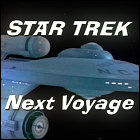 After spending a month writing drafts of the same basic story, Star Trek creator Gene Roddenberry completes the final draft of a live-action script simply titled Star Trek II, though later publications will refer to this script as The God Thing. The script shares many basic structural similarities with the later Star Trek: The Motion Picture, including sweeping upgrades to the Enterprise, Kirk’s promotion out of the captain’s chair, Spock’s return to Vulcan to pursue a purge of his human emotions, and an alien force of unknown power approaching Earth. There, however, the similarities end, as the story depicts an alien entity taking over the minds of Starfleet officers, who begin reciting prayers and exhibiting dangerous degrees of religious zealotry. Kirk and his senior officers, of course, remain unaffected, and disobey the orders of their possessed superiors to save Earth, only to discover that the “God” entity is an alien being which has been influencing human development for thousands of years, having last appeared in a guise which inspired the Judeo-Christian belief system. Likely out of fear of offending its potential audience, The God Thing is swiftly rejected by Paramount, though Bantam Books expresses interest in Roddenberry novelizing his own unused script. Work on that novelization comes to a halt in 1977 as Roddenberry begins work on a prospective Star Trek TV revival, and though other authors will attempt to adapt Roddenberry’s script – including Walter Koenig, Susan Sackett and Fred Bronson, and frequent Trek novelist Michael Jan Friedman – The God Thing remains unpublished. Many elements of the story resurface in Star Trek: The Motion Picture and Star Trek V: The Final Frontier.
After spending a month writing drafts of the same basic story, Star Trek creator Gene Roddenberry completes the final draft of a live-action script simply titled Star Trek II, though later publications will refer to this script as The God Thing. The script shares many basic structural similarities with the later Star Trek: The Motion Picture, including sweeping upgrades to the Enterprise, Kirk’s promotion out of the captain’s chair, Spock’s return to Vulcan to pursue a purge of his human emotions, and an alien force of unknown power approaching Earth. There, however, the similarities end, as the story depicts an alien entity taking over the minds of Starfleet officers, who begin reciting prayers and exhibiting dangerous degrees of religious zealotry. Kirk and his senior officers, of course, remain unaffected, and disobey the orders of their possessed superiors to save Earth, only to discover that the “God” entity is an alien being which has been influencing human development for thousands of years, having last appeared in a guise which inspired the Judeo-Christian belief system. Likely out of fear of offending its potential audience, The God Thing is swiftly rejected by Paramount, though Bantam Books expresses interest in Roddenberry novelizing his own unused script. Work on that novelization comes to a halt in 1977 as Roddenberry begins work on a prospective Star Trek TV revival, and though other authors will attempt to adapt Roddenberry’s script – including Walter Koenig, Susan Sackett and Fred Bronson, and frequent Trek novelist Michael Jan Friedman – The God Thing remains unpublished. Many elements of the story resurface in Star Trek: The Motion Picture and Star Trek V: The Final Frontier.
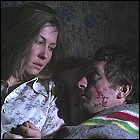 The 11th episode of Terry Nation’s post-apocalyptic series Survivors airs on BBC1.
The 11th episode of Terry Nation’s post-apocalyptic series Survivors airs on BBC1. ![]()
 The 12th episode of Terry Nation’s post-apocalyptic series Survivors airs on BBC1.
The 12th episode of Terry Nation’s post-apocalyptic series Survivors airs on BBC1. ![]()
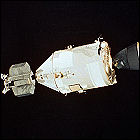 The final launch of an Apollo spacecraft takes place as the last Saturn rocket carries the American component of the Apollo-Soyuz Test Project into orbit. A cooperative international mission intended to see the Apollo capsule dock with a Soviet-launched Soyuz, the ASTP will be the last Apollo flight as the push toward the reusable Space Shuttle takes over NASA’s resources and planning. Aboard the Apollo command/service module are Commander Thomas Stafford, command module pilot Vance Brand, and docking module pilot Deke Slayton, the last of the seven original Mercury astronauts to reach space (heart conditions have prevented him from taking part in a mission until now). Soyuz 19, carrying cosmonauts Alexei Leonov and Valery Kubasov, lifts off a few hours earlier.
The final launch of an Apollo spacecraft takes place as the last Saturn rocket carries the American component of the Apollo-Soyuz Test Project into orbit. A cooperative international mission intended to see the Apollo capsule dock with a Soviet-launched Soyuz, the ASTP will be the last Apollo flight as the push toward the reusable Space Shuttle takes over NASA’s resources and planning. Aboard the Apollo command/service module are Commander Thomas Stafford, command module pilot Vance Brand, and docking module pilot Deke Slayton, the last of the seven original Mercury astronauts to reach space (heart conditions have prevented him from taking part in a mission until now). Soyuz 19, carrying cosmonauts Alexei Leonov and Valery Kubasov, lifts off a few hours earlier. ![]()
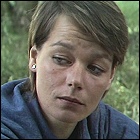 The 13th episode of Terry Nation’s post-apocalyptic series Survivors airs on BBC1, bringing the first season to an end. This is the final episode to feature Carolyn Seymour, and the last episode to be written by series creator Terry Nation.
The 13th episode of Terry Nation’s post-apocalyptic series Survivors airs on BBC1, bringing the first season to an end. This is the final episode to feature Carolyn Seymour, and the last episode to be written by series creator Terry Nation. ![]()
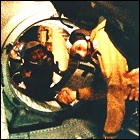 The last Apollo spacecraft to fly makes history by docking with a Soviet-launched Soyuz spacecraft in orbit, allowing the crews to visit each other and conduct joint scientific experiments. The first docking of the Apollo-Soyuz Test Project is hailed as a major development in international relations as well as spaceflight, though it will be 20 years before the feat is repeated. Plans for a second Apollo-Soyuz flight the following year are scuttled due to budget concerns, and the need to commence work on converting NASA’s launch facilities for future shuttle launches rather than further Apollo launches.
The last Apollo spacecraft to fly makes history by docking with a Soviet-launched Soyuz spacecraft in orbit, allowing the crews to visit each other and conduct joint scientific experiments. The first docking of the Apollo-Soyuz Test Project is hailed as a major development in international relations as well as spaceflight, though it will be 20 years before the feat is repeated. Plans for a second Apollo-Soyuz flight the following year are scuttled due to budget concerns, and the need to commence work on converting NASA’s launch facilities for future shuttle launches rather than further Apollo launches.
 Having formed a company mere months before, Micro-Soft – in the persons of young Bill Gates and Paul Allen – make good on their sales pitch to develop a workable BASIC programming language for the Altair 8800 microcomputer. The manufacturer of the Altair, MITS, licenses Micro-Soft BASIC from Gates and Allen, who have put college and everything else on hold to move to Albuquerque to work with the company. Over the next few years, the newly-founded Micro-Soft will create versions of BASIC for other emerging computer systems, and will collide with the free-sharing ethos of computer hobbyist groups, resulting in some of the earliest accusations of computer software piracy.
Having formed a company mere months before, Micro-Soft – in the persons of young Bill Gates and Paul Allen – make good on their sales pitch to develop a workable BASIC programming language for the Altair 8800 microcomputer. The manufacturer of the Altair, MITS, licenses Micro-Soft BASIC from Gates and Allen, who have put college and everything else on hold to move to Albuquerque to work with the company. Over the next few years, the newly-founded Micro-Soft will create versions of BASIC for other emerging computer systems, and will collide with the free-sharing ethos of computer hobbyist groups, resulting in some of the earliest accusations of computer software piracy.
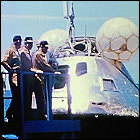 The “age of Apollo” comes to an unbreathable end in an incident during the return of the final Apollo spacecraft. Returning from their successful Apollo-Soyuz Test Project flight, astronauts Thomas Stafford, Deke Slayton and Vance Brand are exposed to fumes from their vehicle’s own reaction control thrusters, thanks to the thrusters firing after the capsule’s air vents open during descent toward the Pacific Ocean. Brand reportedly passes out momentarily due to the toxic fumes. All three astronauts are hospitalized for two weeks in Hawaii.
The “age of Apollo” comes to an unbreathable end in an incident during the return of the final Apollo spacecraft. Returning from their successful Apollo-Soyuz Test Project flight, astronauts Thomas Stafford, Deke Slayton and Vance Brand are exposed to fumes from their vehicle’s own reaction control thrusters, thanks to the thrusters firing after the capsule’s air vents open during descent toward the Pacific Ocean. Brand reportedly passes out momentarily due to the toxic fumes. All three astronauts are hospitalized for two weeks in Hawaii.
 Mushroom Records releases the debut Split Enz album Mental Notes, the product of two months of concentrated recording sessions in Sydney, Australia (and three years of playing live and building a following). The album is a modest success story in Australia and the band’s native New Zealand, and is critically acclaimed for its originality.
Mushroom Records releases the debut Split Enz album Mental Notes, the product of two months of concentrated recording sessions in Sydney, Australia (and three years of playing live and building a following). The album is a modest success story in Australia and the band’s native New Zealand, and is critically acclaimed for its originality. ![]()
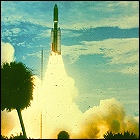 The Viking 1 unmanned space probe, built by NASA and the Jet Propulsion Laboratory, lifts off en route to the planet Mars. Intended to gather and study soil samples on-site on the Martian surface, Viking 1 will take eleven months to reach the red planet. Viking 1 is not the first attempt to land a spacecraft on Mars; the Soviet Union has been attempting such a feat since the 1960s.
The Viking 1 unmanned space probe, built by NASA and the Jet Propulsion Laboratory, lifts off en route to the planet Mars. Intended to gather and study soil samples on-site on the Martian surface, Viking 1 will take eleven months to reach the red planet. Viking 1 is not the first attempt to land a spacecraft on Mars; the Soviet Union has been attempting such a feat since the 1960s.
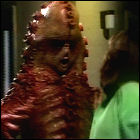 The 402nd episode of Doctor Who airs on BBC1. This opens the show’s 13th season and shifts Doctor Who into the autumn months, where it remains for the rest of the 1970s. This is also the last UNIT story until the late 1980s.
The 402nd episode of Doctor Who airs on BBC1. This opens the show’s 13th season and shifts Doctor Who into the autumn months, where it remains for the rest of the 1970s. This is also the last UNIT story until the late 1980s. ![]()
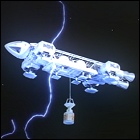 ITV airs the first episode of Gerry Anderson’s new live action series Space: 1999. Space: 1999’s lavish budget, sleek sets and impressive miniature effects work make it the TV science fiction saga to beat in the 1970s (at least visually). Isaac Asimov even reviews it in the New York Times, giving the show’s shaky science a pass in favor of dramatic necessity.
ITV airs the first episode of Gerry Anderson’s new live action series Space: 1999. Space: 1999’s lavish budget, sleek sets and impressive miniature effects work make it the TV science fiction saga to beat in the 1970s (at least visually). Isaac Asimov even reviews it in the New York Times, giving the show’s shaky science a pass in favor of dramatic necessity. ![]()
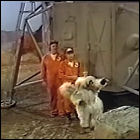 The first episode of Sid & Marty Krofft’s Far-Out Space Nuts airs on CBS, starring Bob Denver (Gillgan’s Island) and Chuck McCann (Herbie Rides Again).
The first episode of Sid & Marty Krofft’s Far-Out Space Nuts airs on CBS, starring Bob Denver (Gillgan’s Island) and Chuck McCann (Herbie Rides Again). ![]()
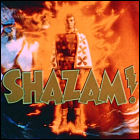 The 16th episode of Filmation’s live-action Shazam! series airs on CBS, starring Jackson Bostwick, Michael Gray and Les Tremayne. John Lupton guest stars in the second season premiere.
The 16th episode of Filmation’s live-action Shazam! series airs on CBS, starring Jackson Bostwick, Michael Gray and Les Tremayne. John Lupton guest stars in the second season premiere.
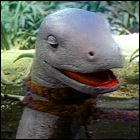 The 18th episode of Land Of The Lost premieres on NBC. The second season premiere is written by Margaret Armen.
The 18th episode of Land Of The Lost premieres on NBC. The second season premiere is written by Margaret Armen. ![]()
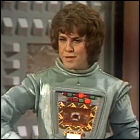 The first episode of Sid & Marty Krofft’s The Lost Saucer airs on ABC, starring Jim Nabors (The Andy Griffith Show, Gomer Pyle USMC) and Ruth Buzzi (Rowan & Martin’s Laugh-In).
The first episode of Sid & Marty Krofft’s The Lost Saucer airs on ABC, starring Jim Nabors (The Andy Griffith Show, Gomer Pyle USMC) and Ruth Buzzi (Rowan & Martin’s Laugh-In). ![]()
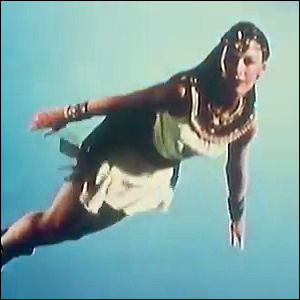 The first episode of the children’s superhero series Isis (sometimes referred to as Secrets of Isis) premieres on CBS, starring Joanna Cameron. The series is part of a live-action superhero programming block produced by Filmation.
The first episode of the children’s superhero series Isis (sometimes referred to as Secrets of Isis) premieres on CBS, starring Joanna Cameron. The series is part of a live-action superhero programming block produced by Filmation. ![]()
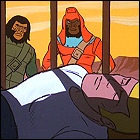 NBC premieres Flames Of Doom, the first episode of Return To The Planet Of The Apes, an animated Saturday morning offshoot of the Planet Of The Apes film/TV franchise. With no solid connecting tissue to the previous Apes sagas, this is Planet Of The Apes for kids, as produced by Ruby-Spears Enterprises.
NBC premieres Flames Of Doom, the first episode of Return To The Planet Of The Apes, an animated Saturday morning offshoot of the Planet Of The Apes film/TV franchise. With no solid connecting tissue to the previous Apes sagas, this is Planet Of The Apes for kids, as produced by Ruby-Spears Enterprises. ![]()
![]()
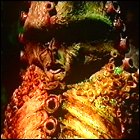 The 403rd episode of Doctor Who airs on BBC1. This is the last UNIT story until the late 1980s.
The 403rd episode of Doctor Who airs on BBC1. This is the last UNIT story until the late 1980s.
This timeline entry leads to an entry covering this entire Doctor Who serial; there are plans to write new episodic entries in the future. You can support this effort!
Order Earl Green’s book VWORP!1 from theLogBook.com Store
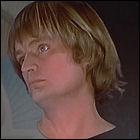 NBC airs the first weekly episode of The Invisible Man, starring David McCallum (The Man From UNCLE, Colditz), Melinda Fee, and Craig Stevens (taking over Jackie Cooper’s role from the pilot movie). Robert Alda (Supertrain) and Conrad Janis (Quark) guest star.
NBC airs the first weekly episode of The Invisible Man, starring David McCallum (The Man From UNCLE, Colditz), Melinda Fee, and Craig Stevens (taking over Jackie Cooper’s role from the pilot movie). Robert Alda (Supertrain) and Conrad Janis (Quark) guest star. ![]()
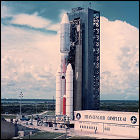 NASA launches the Viking 2 lander and orbiter, designed and operated by Jet Propulsion Laboratory, aboard a Titan IIIE rocket bound for Mars. The combined Viking 2 spacecraft will take nearly a year to reach Mars, achieving orbit in August 1976 and surveying the surface for suitable landing sites before the northern plain named Utopia Planitia is selected for a September 1976 landing attempt.
NASA launches the Viking 2 lander and orbiter, designed and operated by Jet Propulsion Laboratory, aboard a Titan IIIE rocket bound for Mars. The combined Viking 2 spacecraft will take nearly a year to reach Mars, achieving orbit in August 1976 and surveying the surface for suitable landing sites before the northern plain named Utopia Planitia is selected for a September 1976 landing attempt.
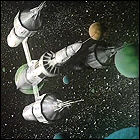 In a meeting with BBC Head of Series & Serials Ronnie Marsh, Dalek and Survivors creator Terry Nation – who has already found himself at odds with the producer of Survivors – pitches a new series idea. Described as “The Dirty Dozen in space,” Nation’s series idea envisions a slightly disharmonious group of rebels taking up arms against a totalitarian, almost Orwellian future government. The concept, which Nation names Blake’s 7 at the meeting, will take a few years to make it to the screen.
In a meeting with BBC Head of Series & Serials Ronnie Marsh, Dalek and Survivors creator Terry Nation – who has already found himself at odds with the producer of Survivors – pitches a new series idea. Described as “The Dirty Dozen in space,” Nation’s series idea envisions a slightly disharmonious group of rebels taking up arms against a totalitarian, almost Orwellian future government. The concept, which Nation names Blake’s 7 at the meeting, will take a few years to make it to the screen.
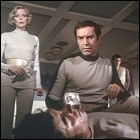 The second episode of Gerry Anderson’s space adventure series Space: 1999 premieres on British broadcaster ITV. Ian McShane guest stars.
The second episode of Gerry Anderson’s space adventure series Space: 1999 premieres on British broadcaster ITV. Ian McShane guest stars. ![]()
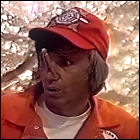 The second episode of Sid & Marty Krofft’s Far-Out Space Nuts airs on CBS, starring Bob Denver (Gillgan’s Island) and Chuck McCann (Herbie Rides Again). John Carradine (House Of Dracula, The Grapes Of Wrath, Stagecoach) guest stars.
The second episode of Sid & Marty Krofft’s Far-Out Space Nuts airs on CBS, starring Bob Denver (Gillgan’s Island) and Chuck McCann (Herbie Rides Again). John Carradine (House Of Dracula, The Grapes Of Wrath, Stagecoach) guest stars. ![]()
 The 17th episode of Filmation’s live-action Shazam! series airs on CBS, starring Jackson Bostwick, Michael Gray and Les Tremayne.
The 17th episode of Filmation’s live-action Shazam! series airs on CBS, starring Jackson Bostwick, Michael Gray and Les Tremayne.
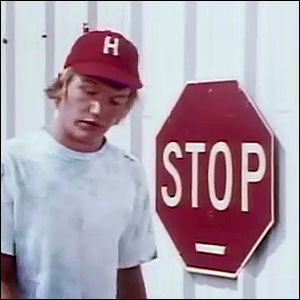 The second episode of the children’s superhero series Isis premieres on CBS (sometimes referred to as Secrets of Isis), starring Joanna Cameron. The series is part of a live-action superhero programming block produced by Filmation.
The second episode of the children’s superhero series Isis premieres on CBS (sometimes referred to as Secrets of Isis), starring Joanna Cameron. The series is part of a live-action superhero programming block produced by Filmation. ![]()
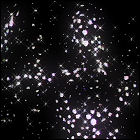 The 19th episode of Land Of The Lost premieres on NBC.
The 19th episode of Land Of The Lost premieres on NBC. ![]()